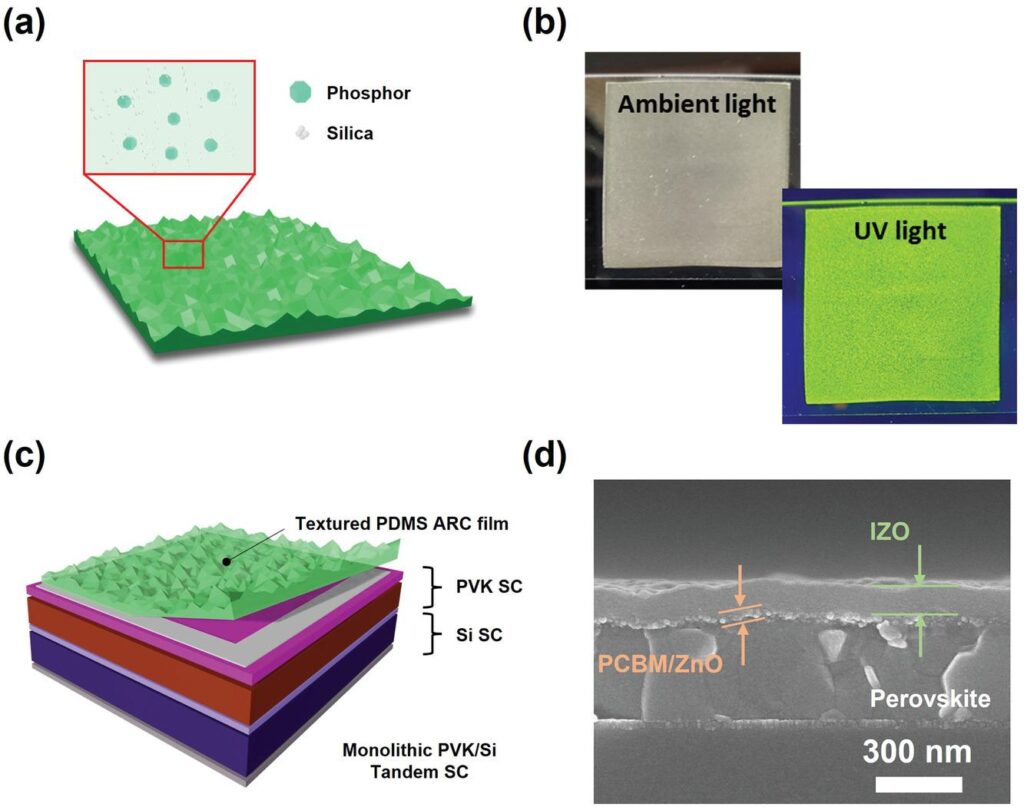Researchers at South Korea’s Ulsan National Institute of Science and Technology (UNIST) have built a tandem perovskite-silicon solar cell with a textured anti-reflective coating (ARC) polymeric film based on silicon dioxide (SiO2) nanoparticles and large phosphor particles.
Both particles are embedded in anti-reflection polydimethylsiloxane (PDMS) layer applied on the frontside of the cell to convert ultraviolet (UV) to visible light and increase the total transmittance of ARC film, thus raising the efficiency of the solar cell itself.
The SiO2 nanoparticles have a spherical shape and are used to improve light scattering affected by the presence of phosphors. This combination helps reduce light reflectance by increasing the diffuse transmittance.
The scientists said their cell achieved a power conversion efficiency of 23.5%, which compares to 22.48% in a reference cell without the ARC.
“Moreover, the PCE of the device with the ARC film was sustained for 120 hours, maintaining 91% of its initial value, while the PCE of existing devices dropped to 90% of its initial efficiency after five hours, and then decreased to 50% after 20 hours,” they stated. “In addition, the initial efficiency of the solar cell has also increased by nearly 4.5% compared to the previous one.”
They presented the coating technology in the study “Improving Light Absorption in a Perovskite/Si Tandem Solar Cell via Light Scattering and UV-Down Shifting by a Mixture of SiO2 Nanoparticles and Phosphors,” published in Advanced Energy Materials.
This content is protected by copyright and may not be reused. If you want to cooperate with us and would like to reuse some of our content, please contact: editors@pv-magazine.com.




2 comments
By submitting this form you agree to pv magazine using your data for the purposes of publishing your comment.
Your personal data will only be disclosed or otherwise transmitted to third parties for the purposes of spam filtering or if this is necessary for technical maintenance of the website. Any other transfer to third parties will not take place unless this is justified on the basis of applicable data protection regulations or if pv magazine is legally obliged to do so.
You may revoke this consent at any time with effect for the future, in which case your personal data will be deleted immediately. Otherwise, your data will be deleted if pv magazine has processed your request or the purpose of data storage is fulfilled.
Further information on data privacy can be found in our Data Protection Policy.